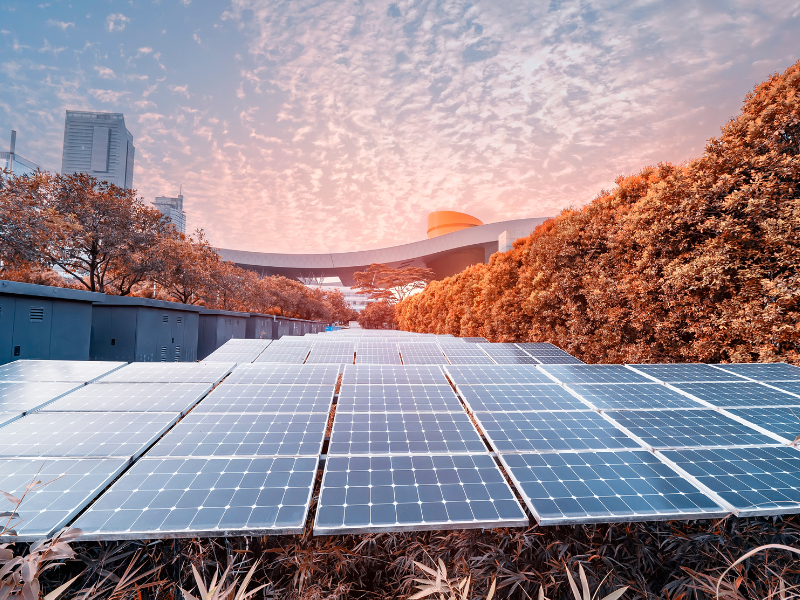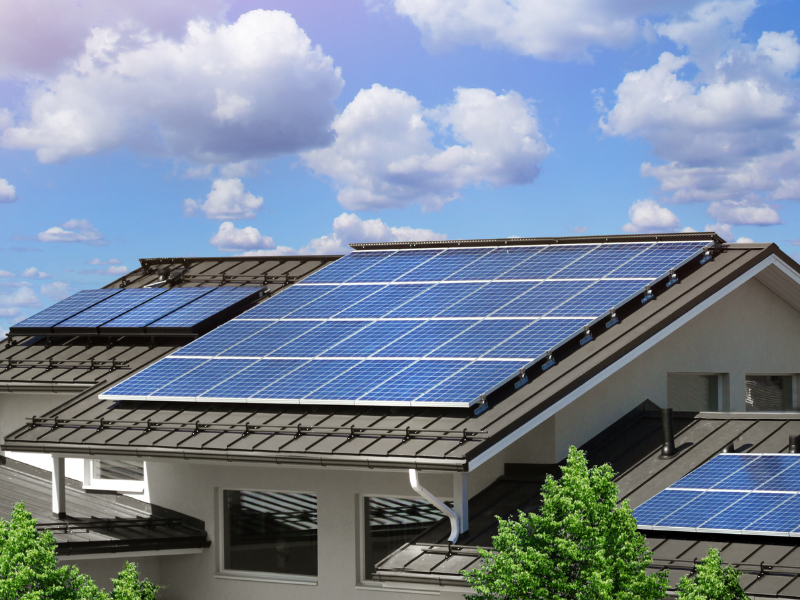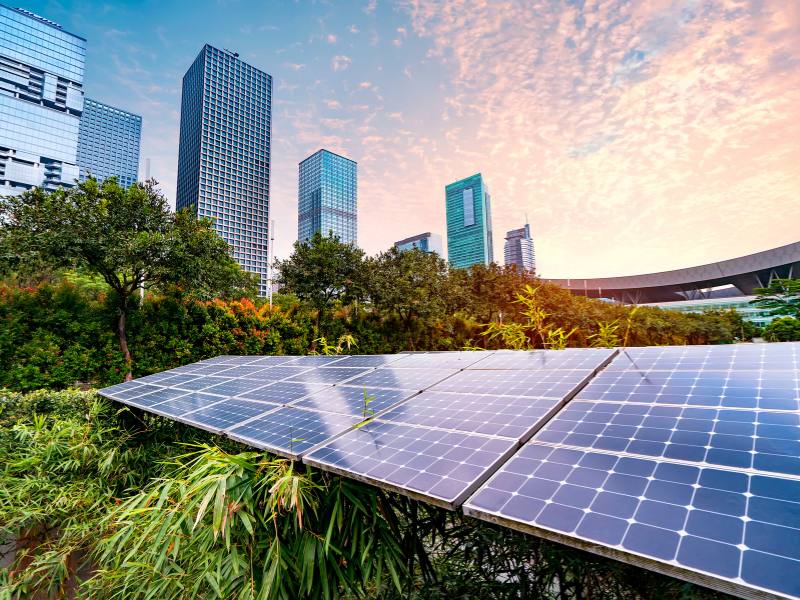The world is facing a critical need for sustainable energy solutions to combat the challenges of climate change and depleting natural resources. In this article, we will explore the best benefits of sustainable energy and how it is shaping our future. Sustainable energy offers numerous advantages, including economic benefits, environmental benefits, social benefits, and health benefits.
We will also discuss various renewable energy sources, the future of sustainable energy, job opportunities in the sector, government incentives and policies, and challenges and solutions for sustainable energy. So, let’s dive in and discover the many advantages of sustainable energy.
What is Sustainable Energy?

Sustainable energy, also known as renewable energy, refers to energy sources that are naturally replenished and have a minimal impact on the environment. Unlike fossil fuels, which are finite and contribute to greenhouse gas emissions, sustainable energy sources harness the power of natural elements such as the sun, wind, water, and heat from the earth. These energy sources are abundant, clean, and have the potential to meet our energy needs without harming the planet.
The Importance of Sustainable Energy

Sustainable energy plays a crucial role in reducing our dependence on fossil fuels and mitigating the impacts of climate change. It offers a sustainable and reliable alternative to traditional energy sources, which are often associated with pollution, resource depletion, and geopolitical conflicts. By embracing sustainable energy, we can create a more resilient and sustainable future for generations to come.
Economic Benefits of Sustainable Energy
Sustainable energy presents multiple economic benefits that contribute to both local and global economies. These benefits include:

- Cost Savings: Investing in sustainable energy technologies can lead to long-term cost savings for individuals, businesses, and governments. Renewable energy sources such as solar and wind have become increasingly affordable, making them more economically viable alternatives to fossil fuels.
- Job Creation: The transition to sustainable energy creates job opportunities across various sectors, including manufacturing, installation, maintenance, and research and development. These jobs are often local, promoting economic growth and reducing unemployment rates.
- Energy Independence: Utilizing sustainable energy sources reduces dependence on fossil fuels, which often need to be imported. This promotes energy independence, enhances national security, and reduces the vulnerability to price fluctuations and geopolitical tensions.
Environmental Benefits of Sustainable Energy

Sustainable energy is instrumental in mitigating the adverse impacts of climate change, reducing pollution, and preserving natural resources. Some of the environmental benefits include:
- Greenhouse Gas Emissions Reduction: Sustainable energy sources produce little to no greenhouse gas emissions, unlike fossil fuels. By transitioning to renewable energy, we can significantly reduce our carbon footprint and combat climate change.
- Air Quality Improvement: Traditional energy sources like coal and oil release harmful pollutants into the atmosphere, leading to air pollution and respiratory health issues. Sustainable energy technologies provide cleaner alternatives, improving air quality and public health.
- Conservation of Natural Resources: Fossil fuel extraction and consumption contribute to the depletion of valuable natural resources. Sustainable energy sources utilize renewable resources such as sunlight, wind, and water, ensuring the preservation of these resources for future generations.
Social Benefits of Sustainable Energy
Sustainable energy has wide-ranging social benefits, positively impacting communities and individuals. These benefits include:
- Energy Access: Sustainable energy solutions enable access to electricity in remote and underserved areas, improving the quality of life and unlocking opportunities for education, healthcare, and economic development.
- Energy Security: Traditional energy sources are susceptible to disruptions, leading to power outages and social instability. Sustainable energy provides a reliable and decentralized energy supply, enhancing energy security even during emergencies or natural disasters.
- Community Empowerment: Local renewable energy projects empower communities to become actively involved in the generation and distribution of clean energy. This fosters community engagement, social cohesion, and collective ownership of energy resources.
Health Benefits of Sustainable Energy
Sustainable energy plays a significant role in improving public health by reducing exposure to harmful pollutants and improving overall well-being. Some health benefits include:
- Reduced Air Pollution: The shift to sustainable energy results in reduced emissions of air pollutants such as particulate matter and sulfur dioxide, which are linked to various health issues, including respiratory diseases, cardiovascular problems, and premature death.
- Improved Indoor Air Quality: Traditional sources of energy like solid fuels for cooking and heating can lead to indoor air pollution, with detrimental effects on individuals’ health. Sustainable energy alternatives eliminate these health risks by providing clean and efficient energy solutions.
- Enhanced Quality of Life: Access to sustainable energy improves living conditions by providing lighting, clean water, and refrigeration. It enables the use of energy-intensive healthcare equipment, enhances educational opportunities, and improves overall well-being.
Renewable Energy Sources
Sustainable energy is harnessed from various renewable energy sources. Let’s explore some of the key sources in detail:
Solar Energy: Harnessing the Power of the Sun
Solar energy is derived from sunlight, and it is one of the most abundant and readily available sources of sustainable energy. Solar panels convert sunlight into electricity through the photovoltaic effect. Solar energy is versatile, and it can be used to generate electricity, heat water, and power various applications. The widespread adoption of solar energy has led to significant advancements in technology, making it an increasingly cost-effective and accessible energy solution.
Wind Energy: Capturing the Power of the Wind
Wind energy is harnessed by wind turbines, which convert the kinetic energy of the wind into electricity. Wind power is a clean and renewable energy source that has been used for centuries. Advancements in wind turbine technology have led to larger and more efficient turbines, capable of generating electricity in both onshore and offshore locations. Wind energy is abundant, scalable, and has the potential to meet a significant portion of global electricity demand.
Geothermal Energy: Tapping into Earth’s Heat
Geothermal energy utilizes the heat stored within the Earth’s crust to generate electricity or provide heating and cooling solutions. Geothermal power plants extract hot water or steam from geothermal reservoirs and use it to drive turbines, generating electricity. Geothermal energy is a reliable and constant source of renewable energy, often found near tectonic plate boundaries. It offers a sustainable energy solution with minimal environmental impact.
Hydroelectric Energy: Utilizing the Power of Water
Hydroelectric power is generated by harnessing the energy of flowing or falling water. Large dams are constructed to store water in reservoirs, creating a height difference or head. When the water is released, it flows through turbines, generating electricity. Hydroelectric power is a mature and widely adopted renewable energy source, providing clean and predictable electricity. However, it can have environmental and social impacts, requiring careful planning and management.
Biomass Energy: Harnessing Organic Matter
Biomass energy utilizes organic matter such as wood, agricultural residues, and dedicated energy crops to generate heat, electricity, or biofuels. Biomass can be burned directly or converted into biogas or biofuels through various processes. Biomass is a versatile and renewable energy source, providing a carbon-neutral alternative to fossil fuels. However, sustainable biomass production and management practices are crucial to prevent deforestation and ensure environmental balance.
The Future of Sustainable Energy
The future of sustainable energy looks promising, with ongoing advancements in technology, policy support, and public awareness. Some key developments shaping the future of sustainable energy include:
- Energy Storage: The development of efficient energy storage technologies is crucial to overcome the intermittent nature of some renewable energy sources. Advances in battery technology, pumped hydro storage, and other storage solutions are enabling a more reliable and responsive sustainable energy grid.
- Electrification of Transportation: The electrification of transportation, including the adoption of electric vehicles (EVs), contributes to reducing reliance on fossil fuels and lowering greenhouse gas emissions. As EV technology progresses and charging infrastructure expands, the transportation sector will play a significant role in the sustainable energy transition.
- Smart Grid Systems: The integration of digital technologies and smart grid systems allows for more efficient management and distribution of electricity. Smart grids enable real-time monitoring, demand response, and optimization of energy consumption, leading to increased efficiency and reduced energy wastage.
- Research and Development: Continued investments in research and development are driving innovation in sustainable energy. Advancements in areas such as solar cell efficiency, wind turbine design, and renewable energy storage are improving the overall performance and affordability of sustainable energy technologies.
Job Opportunities in the Sustainable Energy Sector
The transition to sustainable energy creates a wide range of job opportunities across various sectors. Some key areas where job growth is expected include:
- Solar Energy: The solar industry offers job opportunities in manufacturing, installation, maintenance, and research and development of solar panels and related technologies.
- Wind Energy: The wind industry requires skilled professionals in turbine manufacturing, installation, maintenance, and wind resource assessment.
- Energy Efficiency: Improving energy efficiency in buildings and industries creates employment opportunities in energy auditing, retrofits, and designing energy-efficient systems.
- Research and Development: The growth of sustainable energy relies on continuous research and development. Jobs in R&D focus on improving existing technologies and developing innovative solutions.
Government Incentives and Policies
Government incentives and policies play a crucial role in promoting the adoption of sustainable energy. Some common examples include:
- Feed-in Tariffs: These policies guarantee a fixed payment for renewable energy supplied to the grid, incentivizing individuals and businesses to invest in sustainable energy systems.
- Tax Credits and Rebates: Governments often provide tax credits or rebates for the installation of renewable energy systems, making them more affordable and attractive to consumers.
- Renewable Portfolio Standards: These policies require utilities to obtain a certain percentage of their energy from renewable sources, encouraging the development and integration of sustainable energy projects.
- Research Grants and Subsidies: Governments provide funding and grants to support research and development in sustainable energy technologies, driving innovation and technological advancements.
Challenges and Solutions for Sustainable Energy
While sustainable energy offers numerous benefits, it also faces several challenges. Some key challenges include:
- Intermittency: Some renewable energy sources, such as solar and wind, are intermittent and dependent on weather conditions. Energy storage technologies and grid integration solutions can help address this challenge, ensuring a reliable and continuous energy supply.
- Infrastructure and Grid Integration: Integrating large-scale renewable energy projects into existing infrastructure and grids can be complex. Upgrading transmission systems, building new infrastructure, and implementing smart grid technologies are essential for effective integration.
- Initial Investment Costs: While the operational costs of sustainable energy systems are generally lower, the upfront investment costs can be significant. Government incentives, innovative financing models, and declining technology costs are helping make sustainable energy more affordable.
- Public Acceptance and Awareness: Public acceptance and awareness of sustainable energy are vital for its successful implementation. Educating the public, addressing misconceptions, and promoting the benefits of sustainable energy can help overcome resistance and foster widespread adoption.
Frequently Asked Questions
Q: How does sustainable energy reduce greenhouse gas emissions?
Sustainable energy sources produce little to no greenhouse gas emissions during operation, unlike fossil fuels. Renewable energy technologies such as solar, wind, and hydro do not release carbon dioxide or other pollutants that contribute to climate change.
Q: Can I save money by using sustainable energy?
Yes, sustainable energy can lead to long-term cost savings. Investing in solar panels, for example, can significantly reduce your electricity bills over time. With the declining costs of renewable energy technologies, the potential for cost savings is increasing.
Q: Are there job opportunities in the sustainable energy sector?
Yes, the transition to sustainable energy creates job opportunities across various sectors, including manufacturing, installation, maintenance, research and development, and policy development. The growing demand for sustainable energy solutions is driving job growth in the sector.
Q: How can individuals contribute to sustainable energy?
Individuals can contribute to sustainable energy by adopting energy-efficient practices, investing in renewable energy systems for their homes or businesses, and supporting policies and initiatives that promote sustainability.
Conclusion
Sustainable energy offers significant benefits in terms of economics, environment, society, and health. By harnessing renewable energy sources and adopting sustainable energy technologies, we can create a cleaner, more resilient, and sustainable future. The transition to sustainable energy requires collective efforts from individuals, businesses, governments, and international communities. With continued investments in research, innovation, and policy support, we can overcome challenges and unlock the full potential of sustainable energy for the benefit of present and future generations. Let us embrace sustainable energy and be part of the positive change towards a brighter and greener future.

